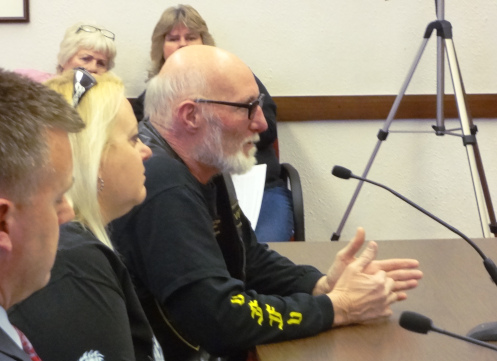Down With MOST

Back in 2013 there was opposition to continuing the MOST program. Most supporters from those days now wish they had lost that battle.
Bureaucracies never die, you just wish they would. Take Colorado’s MOST program–please!
The Motorcycle Operator Safety Training (MOST) program is up for sunset review this year, as House Bill 20-1285, and although it is no longer doing anything close to what it was intended to do, it appears destined to continue to exist. HB20-1285 will be heard in the House Business Affairs & Labor Committee on March 3 if you want to go register your preferences.
It started out as a good thing. Colorado motorcyclists supported the creation of MOST, willingly agreeing to pay an extra $4 every time we renew our drivers licenses and an extra $2 for every motorcycle license plate renewal in order to fund the program. In return, money raised was used primarily to lower the cost for students taking motorcycle rider training courses. The legislation limited program administrators to using only up to 15% of the funds to cover the cost of administration.
Today the program brings in about $800,000 per year but not one penny goes to reducing the cost of training. And while the administrators say they keep their cost to under 15%, a good deal more than that is used to fund “contract administration,” which is to say, to pay for an outside vendor to run the program. Isn’t that what the state agency was supposed to do with the 15%? And just what exactly are they doing with the rest of the money? Putting up road signs warning drivers to watch out for motorcycles? That doesn’t seem a particularly good return on the investment of $800,000. Per year.
You might think there would now be a concerted effort to get rid of MOST but you would be wrong. I raised this question at my ABATE D-17 meeting last week and it seems the matter comes down to one consideration. All organizations and companies in Colorado that offer motorcycle rider training, if they operate under the MOST umbrella, can sign off a student on the riding portion of their motorcycle riders license presuming they pass the course successfully. Then all they need to do is take the written test and boom, they’re done.
The concern is that if MOST went away, so would this ability to certify the riders, and the impetus to take training would diminish. That would mean more untrained–and possibly unlicensed–riders out there and a lot less income for ABATE, T3RG, and other training organizations.
A number of years ago the MOST program was up for review and was facing harsh criticism. The Colorado Confederation of Clubs was actively campaigning to abolish it. ABATE of Colorado fought to keep it.
Now, from what I gather, everyone hates MOST but we have to keep it or else.
How about a different approach? How about we get rid of MOST but pass a bill allowing rider training vendors to certify trainees as long as they meet certain standards? We could cut the amount we riders contribute to maybe $1 on our plate renewals and that should completely cover the modest expense to monitor the training vendors.
Of course, passing the legislation is the sticker. That requires finding sympathetic legislators, crafting a bill, and building a constituency to get it passed. That’s not easy. It’s just so much easier to renew the program for another five years and move on to the next bill. Even if the program is not doing what it was created to do. This is why bureaucracies never die.
Biker Quote for Today
You know you’re a biker if you pile boxes and laundry on your car, but your bike must have 6 feet or clearance in the garage.
Tags: Colorado MOST program
